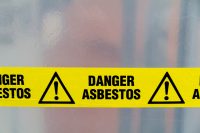12 Steps for Protecting Workers Who Handle Nanomaterials
Nanoscale applications are rapidly moving from the research lab to industrial and commercial settings. According to the Occupational Safety and Health Administration (OSHA), examples of workplaces that may use nanoscale materials (nanomaterials) include chemical or pharmaceutical laboratories or plants, manufacturing facilities, medical offices or hospitals, and construction sites. Yesterday we explored nanomaterials hazards and ways […]










